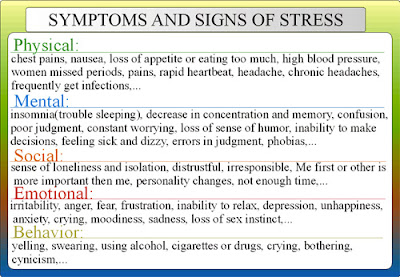Getting Pregnant and Salmon Quiche!
"One of the first things I counsel women about is the role of their weight in influencing their fertility," says Janet Choi, MD, a reproductive endocrinologist at the Columbia Presbyterian Medical Center in New York City.
Ok first I need to say
HOWEVER - it is in our very near future and I am concerned that we can't get pregnant. Chris thinks I worry too much and that this is totally invalid and ridiculous but according to research if a woman is having regular unprotected sex and doesn't get pregnant within 12 months she needs to check with a doctor. Now I am not going to go too in depth on our sex life but I suppose that its possible we just haven't been doing it at the right times. I have mentioned before that a big part of this weight loss journey is so that my pregnancy will go smoothly and that I will have healthy habits down so that I raise my kids with a healthy lifestyle. I was an overweight child and I carried it into adulthood but I don't want to raise overweight children to have to go through the same struggles I did. It is easier to start at this point so that I can be healthy and my kiddos have the best chance of being healthy also.
NOT TO MENTION
That being said apparently this is also going to help my odds of getting pregnant when we start trying in the next few months.
DIET HELPS
For women whose BMI was higher than 35, there was up to a 43% overall decrease in the ability to conceive.
REDUCE STRESS
Although links between stress and infertility have been long debated, evidence continues to mount that the two are intertwined.
WHAT ABOUT CHRIS?
Managing stress, avoiding alcohol and tobacco, maintaining a proper weight, and eating a diet high in zinc (found in meat, whole grains, seafood, and eggs), selenium (meat, seafood, mushroom, cereals, and Brazil nuts) and vitamin E may help improve male fertility. So can keeping the testicles cool -- no long hot baths, hot tubs, or saunas, which can decrease the number of sperm.
Now I feel like I am more educated and I know what to do around February when we start trying to officially conceive. I hope that at that point I will have a much lower BMI and that I can continue to lose weight in a healthy way while I am pregnant. I really want to get pregnant ASAP but I would like to be around 170-150 before I get pregnant. 100 pounds lost mark basically.
Ok first I need to say
NO WE ARE NOT OFFICIALLY TRYING
TO GET PREGNANT
NOT TO MENTION
In the new analysis, women who were obese before pregnancy or in early pregnancy had a significantly increased risk of having a baby with birth defects. The risks differed for specific problems.
- The risk of spina bifida was more than two times as high for obese pregnant women, and the overall risk of neural tube defects was nearly twice as high.
- The risk of cardiovascular defects was 30% higher.
- The risk of cleft lip and cleft palate, either singly or together, was about 20% higher.
- The risk of hydrocephaly (an abnormal buildup of fluid in the brain) was 60% higher.
- Limb reduction abnormalities were 30% higher.
That being said apparently this is also going to help my odds of getting pregnant when we start trying in the next few months.
DIET HELPS
Which dietary tenets were significant for increasing fertility?
- Eating more monounsaturated fats (like olive oil) and less trans fats (like the kind found in many baked goods or fast foods).
- Increasing intake of vegetable protein (like soy), while reducing animal protein (like red meat).
- Eating more high fiber, low-glycemic foods -- like whole grains, vegetables, and some fruits, while reducing the intake of refined carbohydrates and sugars.
- Consuming moderate amounts of high-fat dairy products -- like ice cream, whole milk, and cheese.
Pollack believes it's worth giving the diet a try but says, "You should not depend on it alone -- make it just one part of your overall efforts to conceive."
WEIGHT MATTERS
For many women -- particularly those who are overweight -- problems are traced to ovulatory dysfunction, often caused by PCOS. That said, a recent Dutch study of some 3,000 women found excess weight could also interfere with fertility even if a woman is ovulating normally.
In fact, the British Fertility Society in 2007 issued new guidelines urging members to defer fertility treatments in very obese women (BMI over 35) until they gave weight loss a try.For women whose BMI was higher than 35, there was up to a 43% overall decrease in the ability to conceive.
MY STARTING BMI WAS 50.... UH OH
My current BMI is 40 so I am slowly getting there!
REDUCE STRESS
Although links between stress and infertility have been long debated, evidence continues to mount that the two are intertwined.
In studies conducted by Alice Domar, PhD, at Harvard's Mind-Body Institute, women who underwent stress reduction therapy saw dramatic increases in their ability to get pregnant. In fact, even women who were already undergoing fertility treatments had more successful outcomes when stress was kept under control.
More recently, research conducted at Magee Women's Hospital in Pittsburgh by Sarah Burga, MD, linked stress to a condition known as functional hypothalamic amenorrhea (FHA). Affecting some 5% of women in their reproductive years, it causes irregular or absent menstrual cycles.
Choi says, "I don't advocate quitting your job just to get rid of stress, but if you can try to get better day-to-day management of your anxieties, I believe it can work in conjunction with other methods to encourage fertility."
ACUPUNCTURE?
Studies linking acupuncture to conception have by and large been conducted on women undergoing fertility treatments. Still, many experts are quick to point out that this ancient Chinese medical art may also work to help encourage fertility overall -- even for those couples trying to conceive naturally.
"I sometimes recommend acupuncture, in conjunction with stress reduction activities such as yoga, to help encourage pregnancy," Pollack says.
"I wouldn't advise a couple to rely only on acupuncture, or to try it without first getting a fertility workup, but if everything checks out OK, acupuncture can be helpful," she says.
TIMINGS IS EVERYTHING
While being intimate during the "right time of the month" won't do anything to increase your fertility, it can increase your chances of getting pregnant -- simply by ensuring you and your partner connect during the time conception is possible.
Timing is crucial, says Pollack, because "an egg only lives for 24 to 36 hours." But sperm can live in the lower portion of a woman's reproductive tract a lot longer -- often up to five days. So to increase your chances of conceiving you should be intimate with your partner beginning three to four days prior to ovulation, and continuing up to 24 hours after ovulation.
A kit that helps predict ovulation may tell you when it's the best time to have intercourse, but most did little else to foster fertility -- until now.
A new kit developed by Conceivex not only offers ovulation prediction, but it also contains a small latex-free cervical cap to actually help you conceive. The idea here is to concentrate an ejaculate into the cap and insert it into a woman's body directly at the opening of the cervix. In a kind of do-it-yourself mini-insemination, it does away with the need for sperm to swim through a sometimes chemically "hostile" vaginal canal, placing them instead right at the palace gates. WELL THAT JUST TOOK THE FUN OUT OF THINGS.....
Now aside from that what are the tips for getting pregnant after you have increased your fertility odds?
The average menstrual cycle is 28-32 days. While the exact timing of ovulation can vary, on average it happens between day 11 and 21 of your cycle. A brain hormone called luteinizing hormone (LH) surges, triggering the release of the egg that's most ripe. At the same time, your cervical mucus changes to a slippery, egg-white consistency, to help sperm make their way to the egg. Women are born with about 1-2 million eggs, but only 300 to 400 will be released through ovulation. Usually just one egg is released each month. The egg travels down the fallopian tube toward the uterus, where it's ready to be fertilized. The egg only lives about 12 to 24 hours after leaving the ovary. Sperm can live for about 3 to 5 days, so knowing you're due to ovulate soon can help you and your partner plan sex for when you're most likely to conceive. If fertilization does not occur, the egg dissolves after 24 hours. Generally, the highest chance of pregnancy is when intercourse occurs 1-2 days prior to ovulation. If you have a regular 28-day cycle, count back 14 days from when you expect your next period to start. Plan on having sex every other day around that time -- say, days 12 and 14. Keep in mind that having sex every day may decrease a man's sperm count. Your cycle may be longer or shorter, so using an online ovulation calculator may help identify the likely day.After an egg is released, what's left of the follicle, called the corpus luteum, releases the hormone progesterone to help thicken the lining of the uterus in preparation of pregnancy. Progesterone causes your body temperature to go up slightly. Taking your temperature every morning with a basal thermometer (about $10 at drugstores) before getting out of bed is one way to predict whether ovulation has occurred. It's inexpensive but not as accurate as other methods for tracking ovulation.WHAT ABOUT CHRIS?
Managing stress, avoiding alcohol and tobacco, maintaining a proper weight, and eating a diet high in zinc (found in meat, whole grains, seafood, and eggs), selenium (meat, seafood, mushroom, cereals, and Brazil nuts) and vitamin E may help improve male fertility. So can keeping the testicles cool -- no long hot baths, hot tubs, or saunas, which can decrease the number of sperm.
MAIN THING TO TAKE AWAY FROM ALL OF THIS?
If you want to boost your chances of getting pregnant, you may want to eat foods rich in folic acids, buy more organic foods and green products, avoid certain plastics (including plastic wrap), maintain a healthy body weight through diet and exercise, and avoid alcohol and caffeine.Now I feel like I am more educated and I know what to do around February when we start trying to officially conceive. I hope that at that point I will have a much lower BMI and that I can continue to lose weight in a healthy way while I am pregnant. I really want to get pregnant ASAP but I would like to be around 170-150 before I get pregnant. 100 pounds lost mark basically.
OK MOVING ON TO THE MOST DELICIOUS BREAKFAST I HAVE MADE IN THE HISTRY OF HEALTY BREAKFASTS!!!!! Seriously its awesome
SALMON AND SPINACH QUICHE
CRUST
- 1 cup whole wheat pastry flour
- 3/4 tsp salt
- 4 tbsp coconut oil
- 2 tbsp skim milk (you can also use soy, coconut, or almond milk)
Blend all ingredients together then push into a pie pan
FILLING
- Egg beaters/ Break Free egg substitute
- 1 real egg
- Spinach
- Onion
- Smoked Salmon
- Laughing Cow cream cheese wedges (2)
- Spices/Seasonings
Start by putting two wedges of cream cheese laughing cow on the bottom of your pie crust. I broke off small chunks so I would have big pieces through every piece of pie.
Then top with raw spinach and onions and then flake the smoked salmon on top of that.
Next beat together one egg with your egg substitute. I didn't measure this I just eyeballed about how much I would need to fill my pie crust. I would guess it was 2 cups plus one egg. I added in seasonings. My seasonings are pre mixed but to get the same overall flavor use a little brown sugar, paprika, salt, pepper, a tiny bit of garlic powder, and chili powder.
Pour the egg into your pie crust and bake at 350 until the egg is totally cooked. I think it was in the oven for about 30-45 minutes.
Serve with coffee and enjoy the awesomeness of the healthy whole wheat coconut oil crust with all the wonderful healthy goodness of spinach and salmon and eggs lower in cholesterol and fat. SERIOUSLY you will miss out on how awesome this is if you don't make is ASAP. This crust is amazingly flaky and delicious. I will use this crust again with coconut almond milk for a sweet pie. DELICIOUS














Comments
Post a Comment